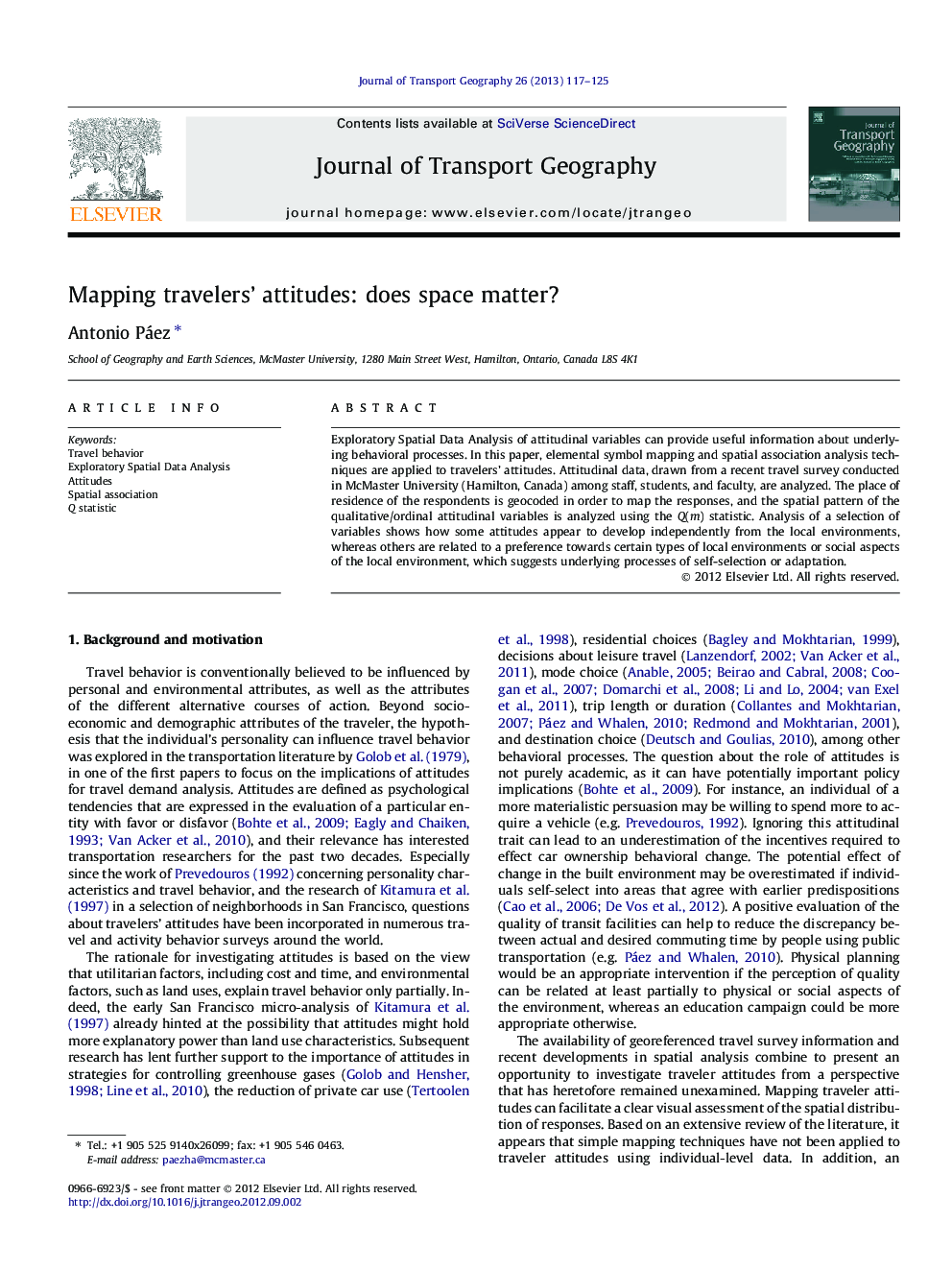| Article ID | Journal | Published Year | Pages | File Type |
|---|---|---|---|---|
| 1059398 | Journal of Transport Geography | 2013 | 9 Pages |
Exploratory Spatial Data Analysis of attitudinal variables can provide useful information about underlying behavioral processes. In this paper, elemental symbol mapping and spatial association analysis techniques are applied to travelers’ attitudes. Attitudinal data, drawn from a recent travel survey conducted in McMaster University (Hamilton, Canada) among staff, students, and faculty, are analyzed. The place of residence of the respondents is geocoded in order to map the responses, and the spatial pattern of the qualitative/ordinal attitudinal variables is analyzed using the Q(m) statistic. Analysis of a selection of variables shows how some attitudes appear to develop independently from the local environments, whereas others are related to a preference towards certain types of local environments or social aspects of the local environment, which suggests underlying processes of self-selection or adaptation.
► Attitudinal responses can provide useful information to understand travel behavior. ► Availability of georeferenced information allows for spatial analysis of travelers’ attitudes. ► Q(m) is used to investigate the spatial pattern of attitudinal responses. ► Systematic spatial patterns are indicative of self-selection or adaptive behaviors in a case study.
